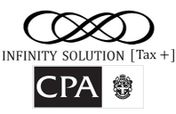
Debunking Audits: A Chartered Accountant's Viewpoint
Introduction
The world of financing is frequently shrouded in a veil of complexity and confusion, specifically when it pertains to audits. Many companies and individuals alike view audits as a challenging process laden with unpredictability. However, understanding the function of a chartered accountant can clarify this vital aspect of monetary management. This article intends to debunk audits from a chartered accountant's point of view, using insights into what they entail, the advantages they supply, and how they contribute to a business's general health.
As we traverse this journey through the world of auditing, we will check out numerous aspects that highlight the expertise and authority of chartered accountants, specifically those operating within Australia and acknowledged worldwide as certified public accountants (Certified public accountants). So let's dive deeper into the world of audits!
Demystifying Audits: A Chartered Accountant's Perspective
What is an Audit?
Auditing is essentially a systematic assessment of a company's monetary statements, records, and operations. It serves several purposes:
- Verification: Making sure that monetary statements are free from material misstatement.
- Compliance: Verifying adherence to regulative requirements.
- Evaluation: Examining the performance and efficiency of internal controls.
A chartered accountant concentrates on performing these evaluations with precision and integrity. In Australia, an Australian Chartered Accountant (ACA) has extensive training and experience to browse complex financial landscapes.
Types of Audits
Internal Audits
Internal audits are performed by an organization's own personnel or worked with experts to evaluate danger management practices and make sure compliance with policies.
- Purpose: To enhance functional efficiency.
- Frequency: They can be carried out continually or periodically.
External Audits
External audits are carried out by independent auditors who review a company's financial statements for accuracy.
- Purpose: To offer assurance to stakeholders.
- Frequency: Normally carried out annually.
The Audit Process Explained
Planning Phase
Before any audit starts, careful preparation is essential. This stage includes:
Fieldwork Phase
During this phase, auditors perform screening procedures consisting of:

- Sampling Transactions: Evaluating picked transactions for accuracy.
- Testing Controls: Evaluating whether internal controls function effectively.
Reporting Phase
After completing fieldwork, auditors compile their findings into a report detailing:
- Opinion on Financial Statements: Whether they provide a real and reasonable view.
- Recommendations for Improvement: Tips based upon observed weaknesses.
Role of the Charter Accountant in Audits
Chartered Accountants play an essential role throughout the auditing process. Their qualifications enable them to:
- Interpret complex accounting standards.
- Identify prospective threats better than non-specialists.
- Communicate findings clearly to stakeholders.
Importance of Audits for Businesses
Audits serve numerous essential functions for organizations aiming to keep transparency and accountability:
How Chartered Accountants Help Businesses Post-Audit
Once auditing is complete, chartered accountants offer invaluable assistance through different methods:
1. Analysis of Findings
Understanding audit reports can be challenging; chartered accountants break down complicated information for simpler comprehension.
2. Strategic Consultation
They deal tactical recommendations based upon audit outcomes, helping organizations improve processes or remedy issues highlighted during the review.
3. Training & & Development
Chartered accountants may also perform training sessions targeted at enhancing internal controls within organizations.
Common Myths About Audits Debunked
1."Audits are Only for Big Business "
This misconception overlooks that all services-- no matter size-- can gain from routine audits as part of sound monetary management practices.
2."An Audit Method You remain in Trouble"
While some might fear that being audited recommends misdeed, it is essential to understand that audits target at making sure compliance and enhancing operational stability instead of penalizing mistakes.
3." All Auditors Are Alike"
There are substantial distinctions among auditors based upon credentials-- chartered accountants have extensive training that boosts their trustworthiness over others without such credentials.
Navigating Taxation Through Audits with CPA Accountants
Tax returns can often become convoluted; however, having a CPA accountant during audit processes simplifies tax-related concerns considerably:
FAQs About Auditing
1. What files are required for an audit?
Typically needed files include:
- Financial statements
- Transaction records
- Bank reconciliations
- Internal control documentation
2. The length of time does an audit take?
The period differs based on company size however normally ranges from numerous weeks to months depending upon intricacy and preparedness.
3. Can I pick my auditor?
Yes! You can choose your favored auditor; nevertheless, ensure they have proper credentials such as being a certified public accountant(CPA).
4. What occurs if concerns occur during an audit?
Should disparities come up during an audit, auditors will discuss these findings with you before issuing suggestions or essential adjustments.
5. Do I require an audit every year?
While not compulsory for all businesses each year, routine audits are advised as they promote continued compliance and Accountant for international investments efficiency examination over time.
6. Is there a difference between an accountant and a licensed public accountant?
Yes! A CPA has met particular licensing requirements-- including passing tests-- while"accountant"is more generic without always suggesting accreditation or licensure status.
Conclusion
In conclusion, debunking audits reveals their essential function in promoting transparency within companies across different sectors-- from small startups to big corporations operating worldwide! With expert guidance from chartered accountants-- whether you're browsing Australian regulations or worldwide standards-- the auditing journey changes into one filled with chance rather than apprehension!
By comprehending the significance behind each action-- from preparing through reporting-- you empower yourself as both company owner(s )& stakeholder(s)alike towards informed decision-making backed by solid data-driven insights supplied by top-rated accountants!
So next time you become aware of audits don't let fear cloud judgment; rather accept them as valuable tools geared up & solely at improving general business health!
If you have additional queries about how you can leverage auditing services tailored specifically for your needs reach out today-- we're here all set & willing assist!
